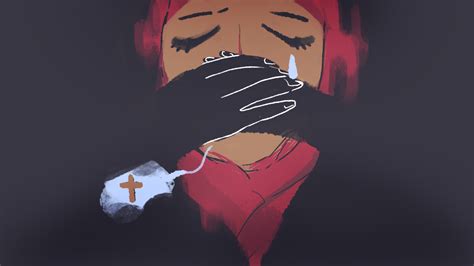Forced conversions have long been a dark and painful reality in Pakistan, casting a shadow over the lives of religious minorities. Every year, countless young girls, particularly from Christian and Hindu communities, are abducted, coerced into converting to Islam, and often forced into marriages with much older men. The scale of this issue, coupled with the lack of effective intervention, makes it a booming yet harrowing business that continues to thrive under the veneer of religious justification.
The Human Cost of Forced Conversion
For minority families, this is a never-ending nightmare. Time and time again, the same chain of events unfolds—a daughter abducted, forcefully converted to Islam, forced into marriage—yet the government stands by in deafening silence. Families’ desperate cries for justice fall on deaf ears, leaving them to fend for themselves against a system that seems complicit in their suffering.
One heart-wrenching story is that of Kavita, a 14-year-old Hindu girl from Sindh. Kavita’s parents recall the day she didn’t return home from school. Days later, they were informed that she had converted to Islam and married her abductor, a man twice her age. Despite pleading with local authorities, they were met with resistance, as the man produced a conversion certificate and claimed Kavita had converted willingly. The family’s cries for justice were drowned in a system designed to protect the perpetrators rather than the victims. It’s the same story, repeated over and over, with no meaningful action from the government to break this cycle of abuse.
The Scale of Forced Conversions in 2024
In 2024, more than 1,200 cases of forced conversions were reported across Pakistan, with significant regional variation:
- Sindh: Nearly 850 cases, mostly targeting Hindu girls from rural areas, often with the involvement of local shrines and clerics who facilitate these abductions.
- Punjab: Around 250 cases, primarily involving Christian girls, with urban centers like Lahore and Faisalabad seeing a disturbing rise in such incidents.
- Balochistan and Khyber Pakhtunkhwa: These provinces collectively reported approximately 100 cases, though the remoteness of these regions often leads to underreporting.
This data highlights the alarming spread of forced conversions, particularly in Sindh, where the practice is most widespread.
Why Forced Conversions Continue
Forced conversions in Pakistan are not isolated incidents but are facilitated by systemic weaknesses and societal complicity. Several factors contribute to the perpetuation of this practice:
- Government Apathy: The government’s failure to take a firm stand against forced conversions has emboldened perpetrators. Despite repeated incidents and mounting evidence, authorities have done little to address the issue. Their inaction sends a clear message: minorities are expendable, and their suffering is not a priority.
- Legal Loopholes and Weak Enforcement: The lack of stringent laws to protect minorities and enforceable penalties for forced conversions allows perpetrators to operate with impunity. In many cases, courts accept flimsy evidence of voluntary conversion, ignoring the age and vulnerability of the victims.
- Religious Extremism: Some extremist groups justify forced conversions as a religious duty, fueling these horrific acts and perpetuating a cycle of violence and exploitation.
- Social and Economic Vulnerability: Minority communities in Pakistan often live in abject poverty, making them easy targets. The absence of financial resources, social support, or political influence leaves them defenseless against powerful individuals or groups.
The Emotional Toll on Victims and Families
The emotional and psychological impact of forced conversions is devastating. For families, the trauma of losing a daughter to such a cruel fate is unimaginable. Mothers are left to cope with immense grief, blaming themselves for not being able to protect their children. Fathers, often the primary breadwinners, feel helpless as they watch their families torn apart by injustice.
For the victims, the scars of forced conversion last a lifetime. Many are forced into marriages and subjected to physical and emotional abuse. They lose their identity, freedom, and childhood. Even when some victims manage to escape, they often face intense societal pressure and stigmatization, making reintegration into their communities difficult.
A Call for Justice
The growing problem of forced conversions in Pakistan is not just a legal issue—it is a deep humanitarian crisis. Every time a young girl from a minority community is taken, the silence from those in power becomes even more deafening. Where are the leaders who promised to protect all citizens? Where is the justice for the families who have already lost everything?
Yes, laws are in place, but they are hardly followed. In Pakistan, no one fears the law or the courts. Every day, more girls are taken, forced to convert, and their lives torn apart. Yet the laws, that should protect them, are only used to shield the people who commit these crimes. These laws seem to do nothing for the victims and everything for the criminals.
It’s a tragedy that continues to unfold, day after day. The pain these families experience is unimaginable. The young girls are stolen from their homes, and their voices are silenced by a system that ignores their suffering. All they ask for is justice, but it’s a justice that is so far out of reach.
The voices of these victims must be heard. Their stories cannot be ignored any longer
